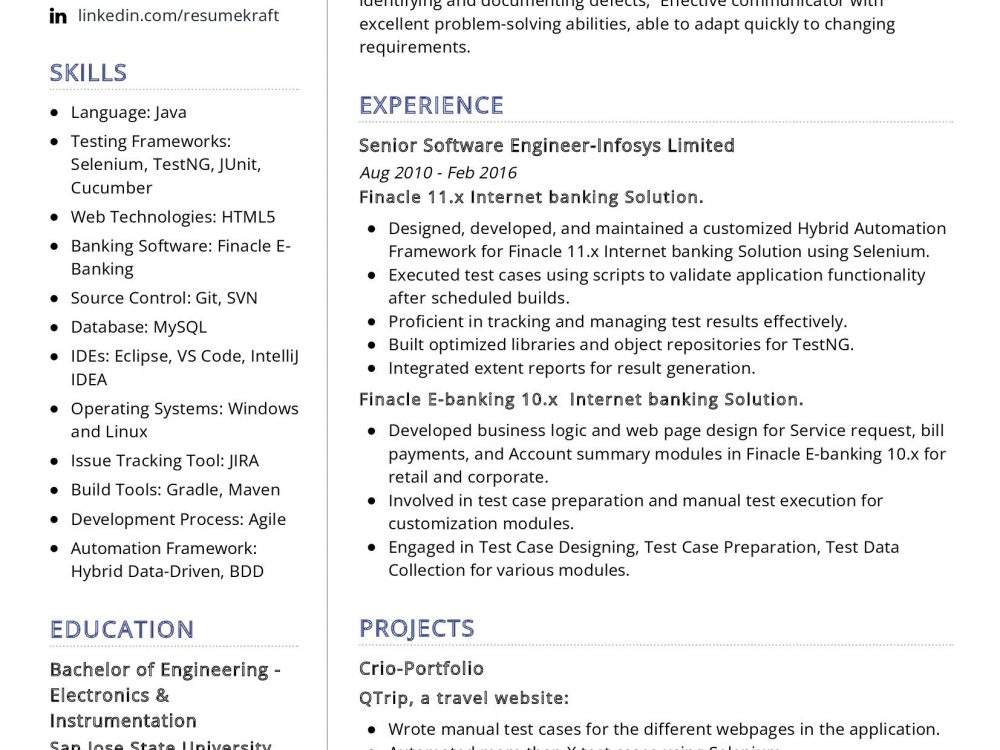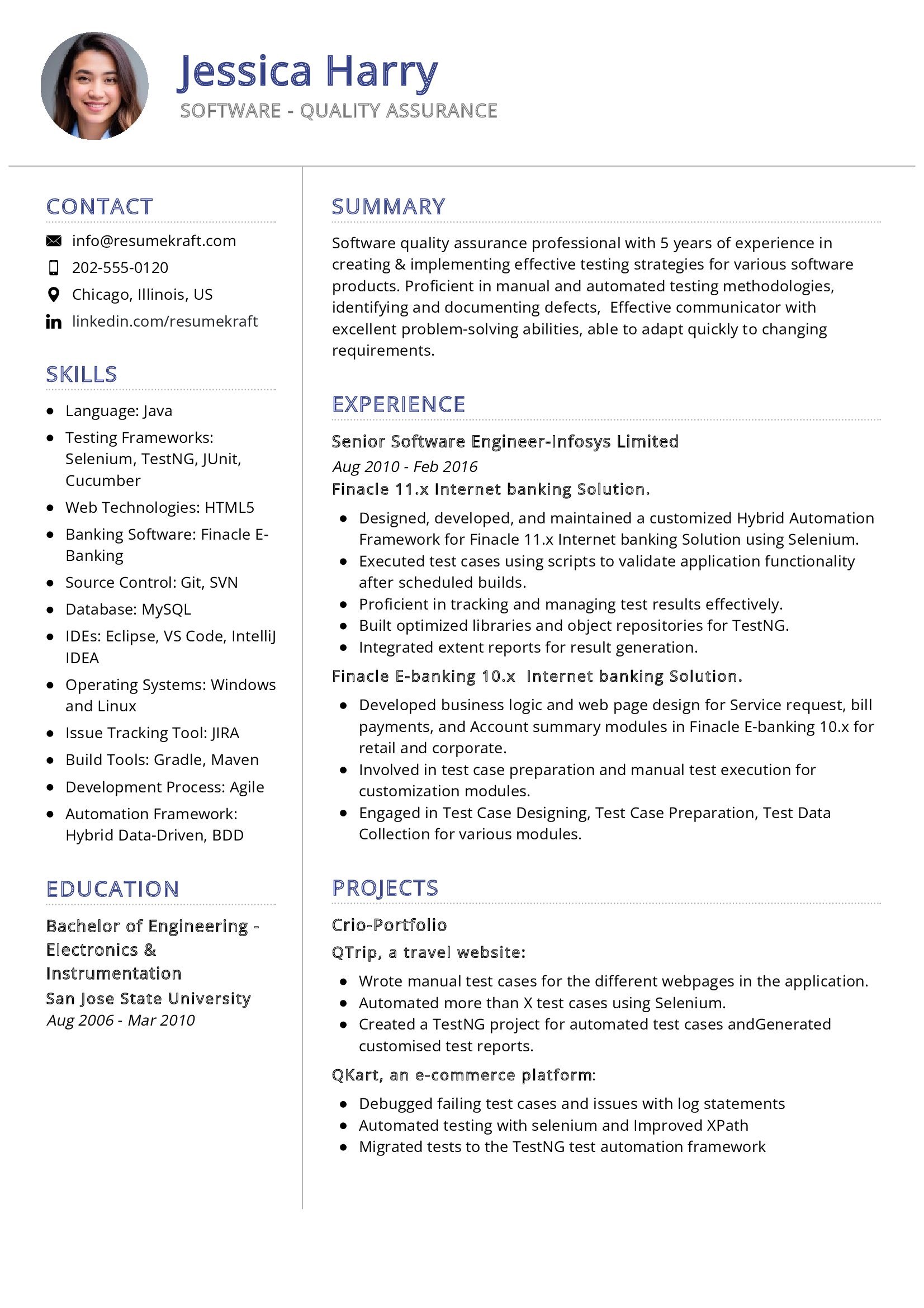Understanding the Role of a Software Quality Assurance Professional
In today’s rapidly evolving tech landscape, the role of a Software Quality Assurance (SQA) professional is more crucial than ever. SQA experts are the unsung heroes behind the scenes, ensuring that the software we rely on functions flawlessly, meeting quality standards and user expectations. In this comprehensive guide, we’ll dive deep into the multifaceted world of Software Quality Assurance, exploring the responsibilities, skills, and qualifications required to excel in this role.
What Does it Take to be a Software Quality Assurance Professional?
Becoming a Software Quality Assurance professional is a journey that demands a unique blend of skills, a commitment to quality, and an eye for detail. Let’s explore the prerequisites that one needs to fulfill to embark on this rewarding career path:
- Educational Background: A strong foundation in Computer Science, Information Technology, or a related field is often a starting point for SQA professionals. A Bachelor’s or Master’s degree in one of these fields provides the technical knowledge needed for success in this role.
- Understanding of Software Development: SQA professionals should have a solid grasp of the software development life cycle (SDLC) and the various methodologies used, such as Agile or Waterfall. This knowledge helps them effectively collaborate with development teams.
- Attention to Detail: The devil is in the details, and SQA professionals must have a keen eye for identifying even the smallest defects or issues in software. Thoroughness is key to ensuring a high-quality product.
- Communication Skills: Effective communication is vital in this role. SQA professionals need to clearly document defects, work closely with developers to resolve issues, and provide reports to stakeholders.
- Analytical Thinking: Problem-solving is at the core of SQA. Professionals in this role should be able to analyze complex systems, identify root causes of issues, and propose solutions.
While these are the foundational requirements, continuous learning and development are essential in the ever-evolving field of software quality assurance.
The Responsibilities of a Software Quality Assurance Professional
The role of a Software Quality Assurance professional is dynamic and multifaceted, encompassing various responsibilities that contribute to the overall quality and reliability of software products. Here are the core responsibilities that define this role:
- Test Planning: SQA professionals collaborate with project managers and developers to create test plans that outline the scope, objectives, and resources required for testing. This planning phase is critical for a successful quality assurance process.
- Test Case Development: Creating detailed test cases is a key aspect of the job. SQA professionals design test scenarios that cover all possible interactions with the software, ensuring comprehensive test coverage.
- Execution of Test Cases: Once test cases are developed, they are executed to identify defects or issues in the software. This involves rigorous testing and documentation of results.
- Defect Identification and Reporting: When defects are discovered, SQA professionals meticulously document the issues, including steps to reproduce them. They then communicate these defects to the development team for resolution.
- Regression Testing: As software evolves, SQA professionals perform regression testing to ensure that new updates or features do not introduce new defects and that existing functionality remains intact.
- Performance Testing: Some software requires performance testing to assess its scalability and responsiveness under various loads. SQA professionals may be involved in performance testing efforts.
- Collaboration and Feedback: Effective collaboration with development teams is crucial. SQA professionals work closely with developers to resolve issues and provide feedback on improving software quality.
Each responsibility is a piece of the puzzle that, when put together, ensures that software meets or exceeds user expectations.
Skills Required for Success in Software Quality Assurance
A Software Quality Assurance professional’s skill set is their toolkit for delivering high-quality software. Let’s explore the essential skills needed to excel in this role:
Technical Skills:
- Testing Tools: Proficiency in testing tools such as Selenium, JIRA, or TestRail is often required. These tools help streamline the testing process.
- Programming Knowledge: Basic programming knowledge, especially in languages like Java or Python, can be valuable for creating automated test scripts.
- Database Management: Understanding how to interact with databases and write SQL queries is useful for testing applications that rely on databases.
Soft Skills:
- Communication: Effective communication with team members and stakeholders is crucial for conveying defects and collaborating on solutions.
- Attention to Detail: A meticulous approach to testing ensures that no defects slip through the cracks.
- Analytical Thinking: The ability to analyze complex systems and identify potential issues is a valuable skill for SQA professionals.
- Time Management: SQA professionals often work on multiple projects simultaneously, so effective time management is essential.
While technical skills are vital, soft skills such as communication and attention to detail are equally important for success in the SQA field.
Common Mistakes to Avoid When Working in Software Quality Assurance
As SQA professionals strive for perfection, it’s essential to be aware of common mistakes that can hinder their effectiveness. Here are some pitfalls to avoid:
- Overlooking User Perspective: Focusing solely on technical aspects and neglecting the user’s experience can lead to missed defects.
- Not Documenting Test Cases: Inadequate documentation of test cases can lead to confusion and inefficiencies in the testing process.
- Skipping Regression Testing: Failing to perform regression testing after software updates can result in the reintroduction of defects.
- Communication Breakdown: Ineffective communication with the development team can lead to misunderstandings and delayed defect resolution.
- Ignoring Performance Testing: Neglecting performance testing can result in software that is not scalable or responsive under heavy loads.
Awareness of these common pitfalls can help SQA professionals navigate their roles more effectively and deliver higher-quality software.
Key Takeaways for Your Career in Software Quality Assurance
As you embark on or continue your journey in the field of Software Quality Assurance, remember these key takeaways:
- Continuous Learning: Stay up-to-date with the latest testing tools and methodologies to remain competitive in the field.
- Collaboration Matters: Effective collaboration with development teams is essential for resolving defects and improving software quality.
- User-Centric Approach: Always consider the end user’s perspective when testing software to ensure it meets their expectations.
- Documentation is Key: Thoroughly document test cases, defects, and testing results to maintain clarity and efficiency.
Your role as a Software Quality Assurance professional is integral to delivering software that enhances the lives of users. By continuously honing your skills and maintaining a user-centric focus, you contribute to the success of the software development process.
Finally, feel free to utilize resources like AI Resume Builder, Resume Design, Resume Samples, Resume Examples, Resume Skills, Resume Help, Resume Synonyms, and Job Responsibilities to create a standout application and prepare for the Software Quality Assurance job interview.


